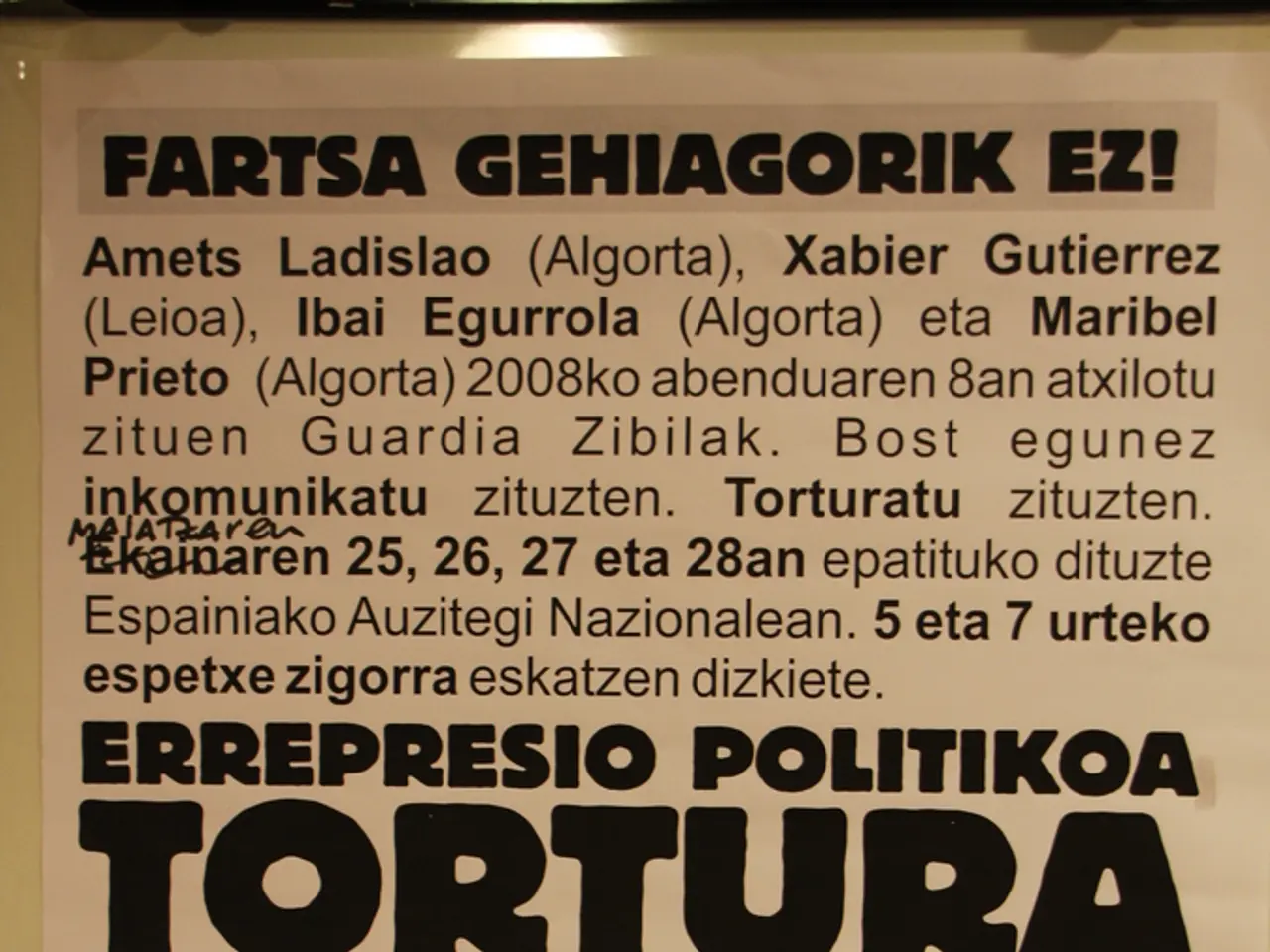Improvised distribution of minor migrants observed; Clavijo stresses their vulnerability, stating, "They are not commodities, they are delicate, living entities"
Transfer of Unaccompanied Migrant Minors From Canary Islands to Peninsula Begins
The Spanish government has initiated the transfer of unaccompanied migrant minors from the Canary Islands to the Peninsula, following a Supreme Court order for the State to assume guardianship and care for these youths under the international protection program.
The first transfer took place on August 11, 2025, with a group of ten minors moved to facilities in Gijón in the northern Peninsula by August 12. These transfers involve groups of approximately ten minors at a time, coordinated jointly by the Ministry of Inclusion, Social Security and Migration, and the Canary Islands government, which retains legal guardianship during the relocation.
The Canarian president, Fernando Clavijo, has expressed concern about "a certain degree of improvisation" in the transfer process. He has questioned whether there was a licensing issue or if the skin color was the reason for the closure of a reception center in Pozuelo de Alarcón, Madrid, given that Ukrainians were previously housed there. Clavijo has called for "common sense" from the central government, the autonomous communities, and political parties in handling this sensitive matter.
The destinations of the children's placements have not been specified. The central government plans a systematic relocation schedule, aiming for around two weekly transfers to distribute about 800 to 1000 minors present in the Canary Islands across the Peninsula, fulfilling legal obligations. However, these transfers have been politically sensitive, with some opposition or administrative hurdles arising in certain regions.
The Canarian president has pointed out that the children are "vulnerable living beings" and described the closure as "indecent." He has recalled the Canary Islands' past solidarity with other autonomous communities and has asked entities to stop using migration as a "political weapon" and to end "petty populism" in regards to the treatment of migrant issues.
Clavijo has also criticized the pace of the transfers, stating that if 30 children are moved weekly, it will take more than 10 months to relocate all the minors. He has expressed gratitude that the Supreme Court has finally "listened to Canarias" on this matter but has not expressed any concern about the transfer itself.
The transfers require certain protocols and guarantees, according to Clavijo. The State will transfer a total of 827 unaccompanied migrant minors to comply with the Supreme Court ruling. Accompaniment during transfer is provided by ministry professionals and NGO personnel, with the minors then cared for in state-recognized reception centers managed by humanitarian organizations such as Accem. The transfers are conditioned by logistics such as flight availability and require formal authorization from the Canary Islands authorities.
In the weeks ahead, regular transfers are planned to complete the relocation of all unaccompanied minors from the Canary Islands to Peninsula reception facilities. Clavijo has demanded an end to "institutional racism" in the handling of these transfers and has urged all parties involved to act with compassion and respect for the vulnerable children involved.
- The general news regarding the transfer of unaccompanied migrant minors from the Canary Islands to the Peninsula has become a topic of debate in the politics of Spain, with the Canarian President, Fernando Clavijo, calling for an end to "petty populism" and "institutional racism" in the handling of these transfers.
- Despite the political sensitivity surrounding the transfers, the Spanish government has made a policy-and-legislation commitment to systematically relocate around 800 to 1000 migrant minors from the Canary Islands to the Peninsula, with an aim to fulfill their legal obligations under international protection programs.
- The Canarian President, Fernando Clavijo, has highlighted the need for proper protocols and guarantees during these transfers, emphasizing the vulnerable nature of the children involved and expressing concern about potential improvisation or biased decisions that could impact the migration process.






